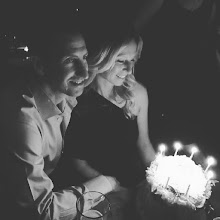I have been meaning to repost my blog from last year on gifts of writing for Christmas for a couple of weeks now. And I am going to do that today but not without first saying a few words on the horrific events of Friday, December 14.
I have been watching the news and trying to keep up with the details. I want to know about the children and their families. I want to talk to people about it even though it makes me cry every time.
Putting my six year old daughter to bed the other night I was simply overcome. As she drifted off to sleep, her head was rested in my lap and I purposely had my hand on her chest over her heart so I could feel it beating and be calmed by the rush of air flowing in and out of her little body. I stroked her face and her golden curls and wept.
I wept for the mothers and fathers who will never hold their beautiful children again. I wept for their broken families and for the small, happy lives forever interrupted. Since that fateful Friday, I have still been the same mom I was before. I have been upset with my kids and annoyed with their usual antics. I have rolled my eyes at the mess they walk away from and yelled at them to stop fighting. But, in the quiet moments, especially with my six year old, I have found myself lingering longer and holding tighter.
And so, because we are lucky enough that we still can, why not take up my challenge of giving a gift of writing for Christmas to let someone close to you know how you feel. Take a moment to turn your feelings into words and your words into a poem. This year I have included more specific tips (thanks to Nancie Atwell) to guide you along. Last year I only know of two people who actually did this – and they were a couple! I have once again included the poem I wrote for my daughter. I wanted to capture her love of Christmas and how we share that love together. I still have to write another one for this year and, like you, I have less than a week to do it.

Merry Christmas Everyone!
#26
Tips for Writing Your Poems
2. How to break (end) the lines of poems – end on strong words (nouns, verbs, adjectives) and not on words like and, the, as, then, etc.
3. Leads – begin inside the idea of your poem. Poems don’t need background information or explanation. Begin inside the experience.
4. Conclusions – the ending should leave the reader with a feeling, idea or image. Don’t drag your poem on too long – end it when you’ve said what you wanted to say. Consider the echo structure – repeat an idea or line from the beginning.
5. Cut it down – “I know a poem is finished when I can’t find another word to cut.” Bobbi Katz. Get rid of unimportant words and ineffective repetitions.
Good luck!
A sampling of gifts written by my students












